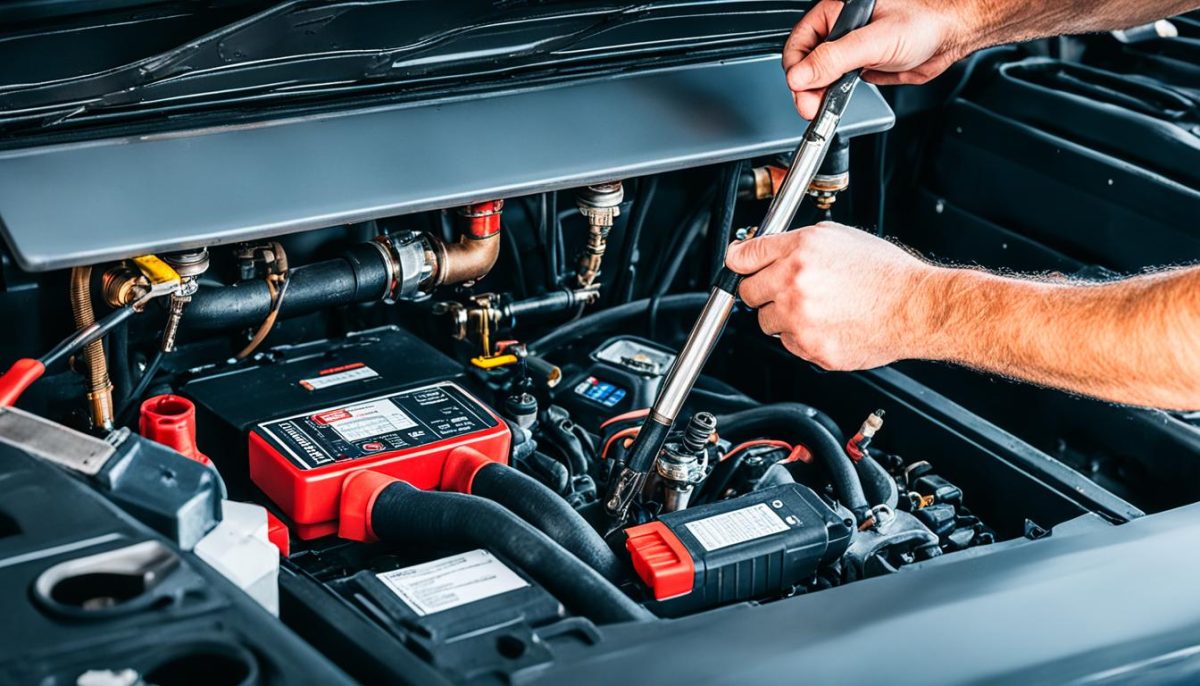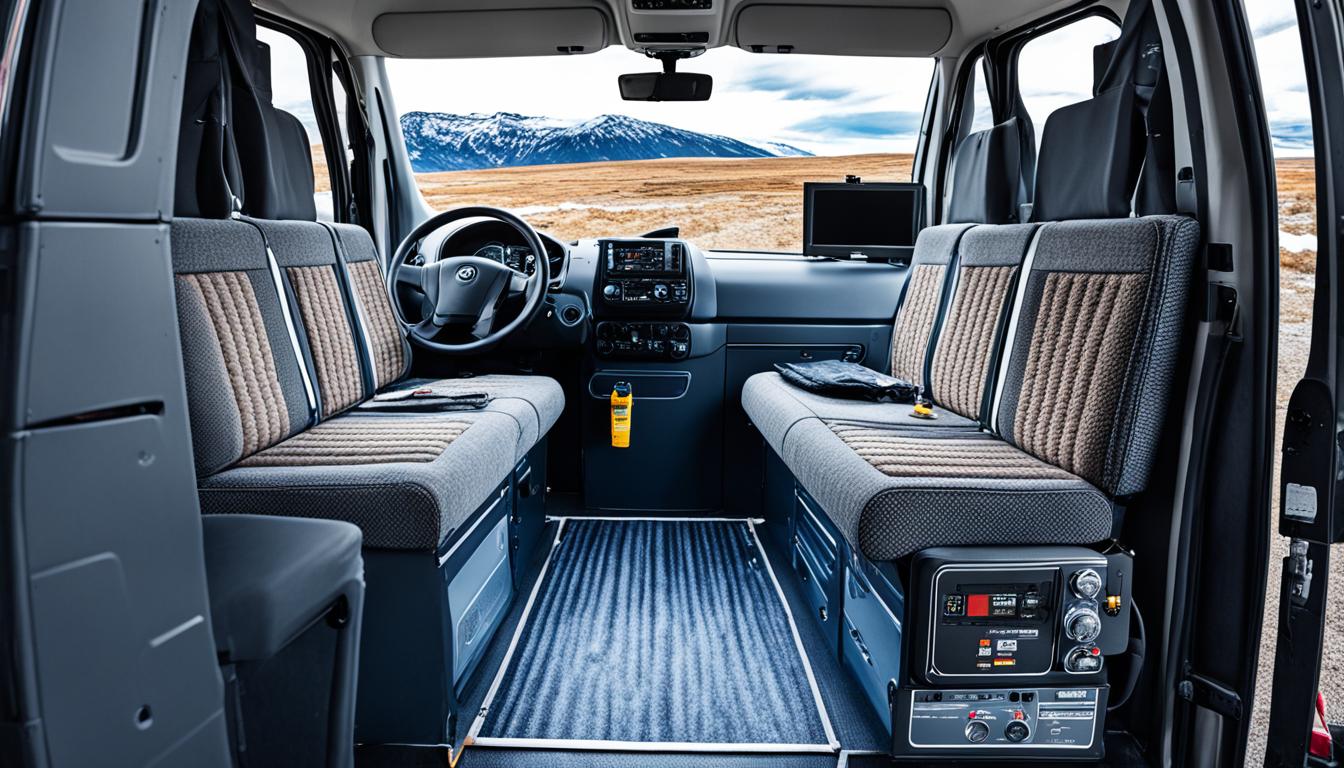Welcome to our guide on diesel heaters in campervans! If you love spending time on the road, exploring the great outdoors, and embarking on memorable camping adventures, then you know the importance of staying warm and comfortable in your campervan. That’s where a diesel heater comes in, providing reliable heating solutions for your mobile home away from home.
A diesel heater is a vital component of any campervan, ensuring that you can cozy up even in the chilliest weather. Whether you’re camping in the mountains or by the beach, a diesel heater will keep you warm and toasty throughout your trip. But how does it work? How does it efficiently heat your campervan while using diesel fuel?
In this article, we will explore the inner workings of a diesel heater, understanding its basics, installation and maintenance, and the benefits it brings to your campervan experience. So, let’s dive in and discover how this incredible heating system can enhance your outdoor adventures!
Understanding the Basics of a Diesel Heater
When it comes to heating a campervan, a diesel heater is a popular and efficient choice. To truly appreciate its functionality, it’s crucial to understand the fundamental components and functions that make it work seamlessly.
At the core of a diesel heater is the combustion process. The heater utilizes diesel fuel, combined with air, to create controlled combustion. This process generates the heat needed to warm up the interior of your campervan and keep you cozy during colder seasons.
Ensuring a steady fuel supply is essential for the proper operation of a diesel heater. Most heaters come with dedicated fuel tanks or can be connected to the existing fuel system of your campervan. This convenient setup allows for continuous heating without the need for frequent refueling.
A crucial aspect of a diesel heater is the air intake system. It draws in fresh air from outside the campervan and directs it to the combustion chamber. This incoming air is crucial for maintaining efficient combustion and preventing the buildup of harmful gases.
Additional components in a diesel heater include the control panel, thermostat, and various sensors. These elements help regulate the temperature, monitor fuel levels, and ensure safe operation.
Understanding the basics of a diesel heater provides insight into the key factors that contribute to its efficiency and reliability. Now that we have explored its fundamental components and functions, let’s dive deeper into the installation and maintenance aspects in the next section.
Installation and Maintenance of a Diesel Heater
Proper installation and regular maintenance are essential for ensuring the optimal performance and longevity of your diesel heater in a campervan. By following the necessary steps and taking the required safety precautions, you can enjoy reliable and efficient heating throughout your outdoor adventures.
Installation:
- Choose the right location for your diesel heater. Ensure it is easily accessible for maintenance and doesn’t interfere with other components in your campervan.
- Refer to the manufacturer’s instructions for specific installation steps and requirements.
- Attach the mounting brackets securely to the floor or wall of your campervan.
- Connect the fuel line and exhaust pipe to the appropriate ports, ensuring proper sealing and avoiding any leaks.
- Install the air intake and exhaust outlets in locations that facilitate adequate airflow and venting.
- Connect the electrical wiring, adhering to the recommended gauge and safety guidelines.
- Double-check all connections and fastenings to ensure they are secure.
Maintenance:
- Regularly inspect the fuel line and exhaust pipe for any signs of damage, deterioration, or leaks. Replace any faulty components immediately.
- Clean or replace the air filter regularly to maintain proper airflow and prevent dust or debris from entering the system.
- Check the combustion chamber for any carbon buildup or obstructions. Clean it if necessary to ensure efficient burning and heat distribution.
- Inspect the electrical connections and wiring for any signs of wear or corrosion. Tighten or replace as needed.
- Test the ignition system periodically to ensure reliable startup and operation.
- Keep the exterior of the diesel heater clean and free from dirt, dust, or debris.
- Refer to the manufacturer’s recommended maintenance schedule and follow it diligently.
By adhering to these installation and maintenance guidelines, you can maximize the performance and reliability of your diesel heater, keeping you warm and comfortable during your campervan adventures.

| Benefits of Proper Installation and Maintenance | Drawbacks of Neglecting Maintenance |
|---|---|
| 1. Enhanced efficiency and performance | 1. Reduced heating efficiency |
| 2. Prolonged lifespan of the heater | 2. Increased risk of malfunctions and breakdowns |
| 3. Lower fuel consumption | 3. Wasted fuel due to poor combustion |
| 4. Improved safety by minimizing the risk of fuel leaks or electrical issues | 4. Increased safety hazards, including fire or carbon monoxide poisoning |
Benefits and Considerations for Campervan Heating
When it comes to campervan heating, a diesel heater offers numerous benefits that make it a popular choice among outdoor enthusiasts. One of the key advantages is its exceptional energy efficiency, allowing you to stay warm without draining your precious power reserves. Unlike other heating options, a diesel heater operates independently from external power sources, ensuring that you can stay cozy even in remote locations.
In addition to its efficiency, a diesel heater also provides a high level of safety. The combustion process is carefully controlled, preventing the release of harmful emissions and minimizing the risk of carbon monoxide poisoning. This peace of mind is invaluable when you’re enjoying your campervan adventures with your loved ones.
Furthermore, a diesel heater offers excellent fuel economy. The system is designed to maximize the use of fuel, allowing you to heat your campervan for extended periods without constantly refueling. This not only saves you money but also allows you to focus on what matters most – exploring the great outdoors rather than worrying about running out of fuel.
When selecting a campervan heating system, it’s crucial to consider your specific needs and preferences. Evaluate the size of your campervan, the climate in which you’ll be traveling, and the level of insulation. Take into account the noise level of the heater and its compatibility with other systems in your vehicle. By carefully considering these factors, you can choose the right diesel heater that will provide comfort and reliability throughout your journeys.



